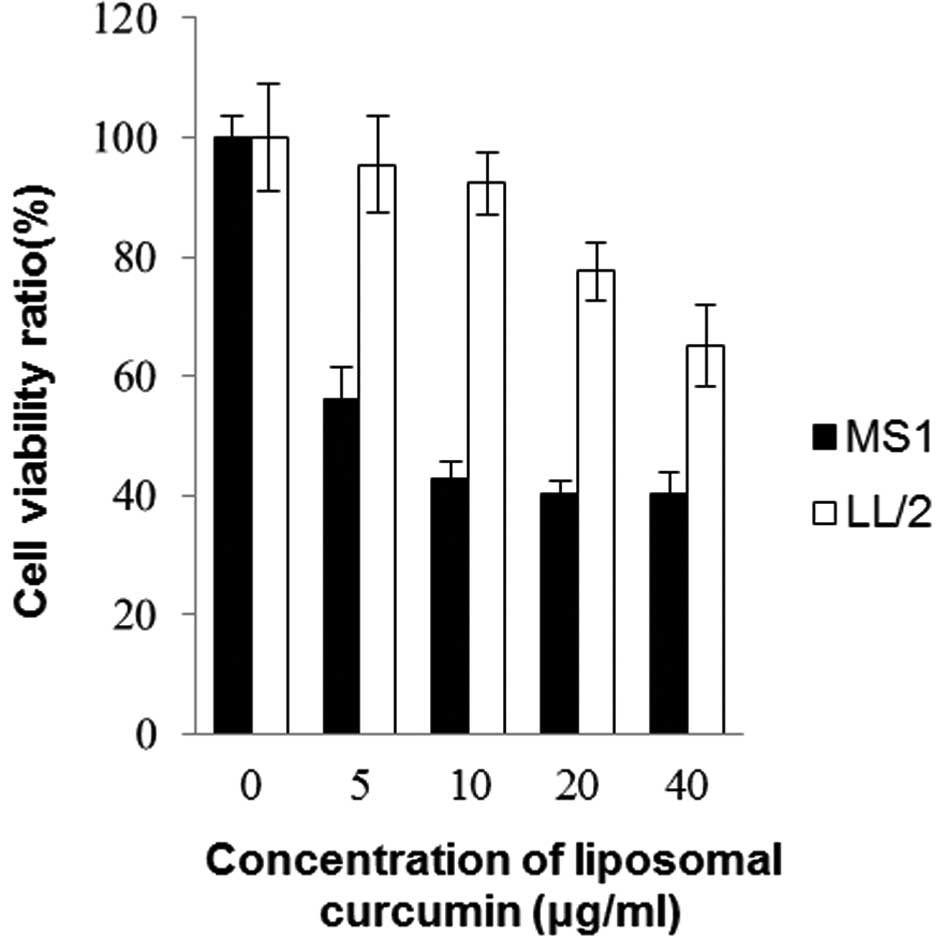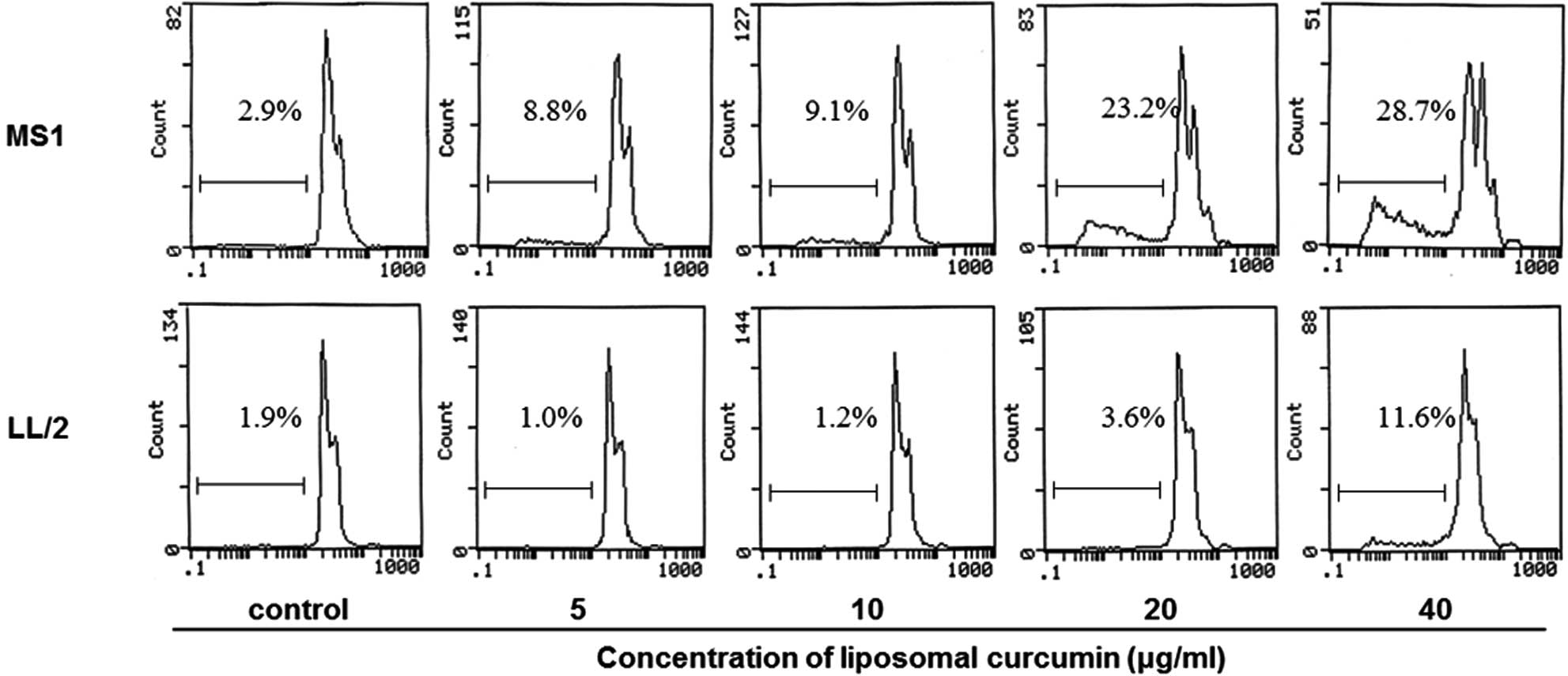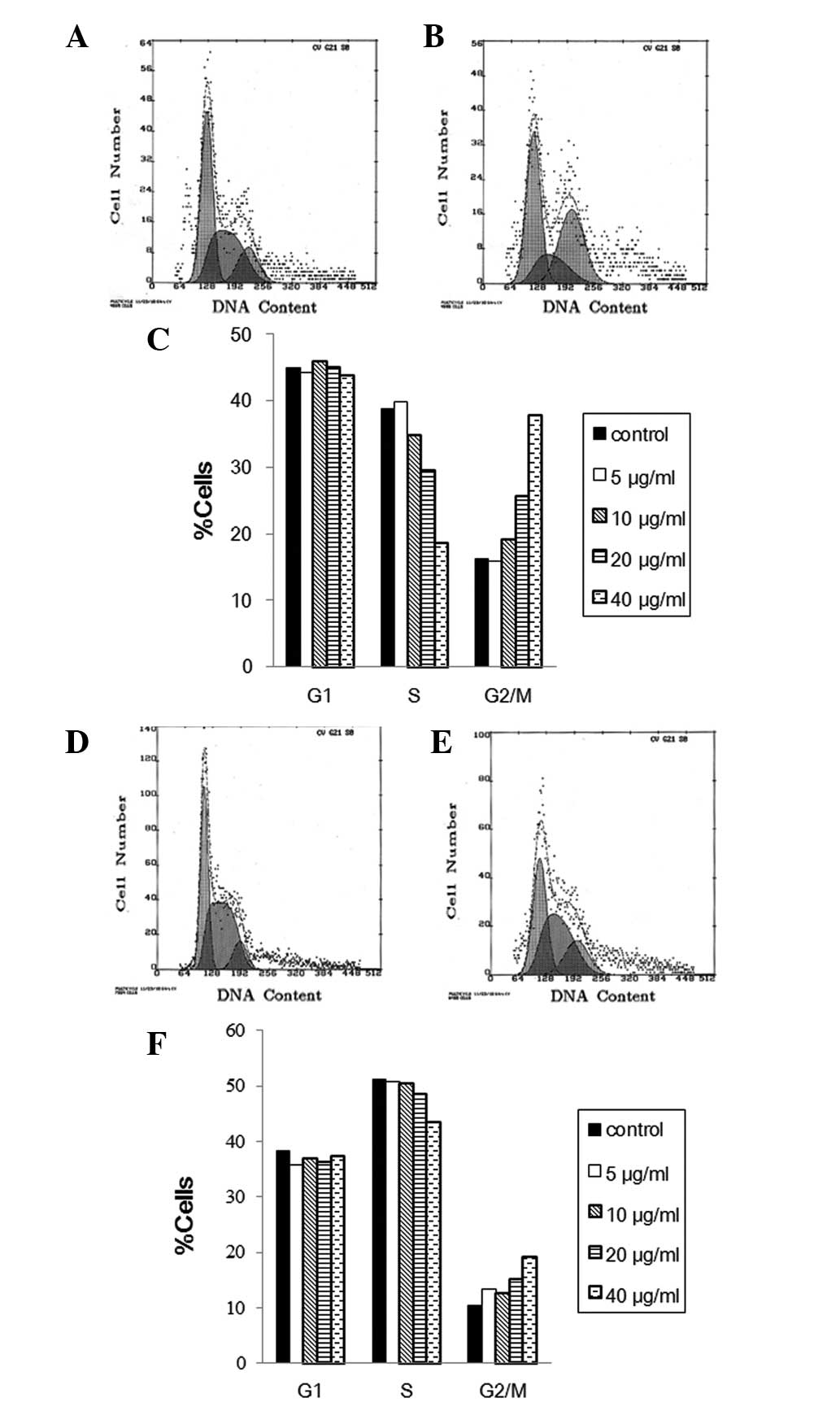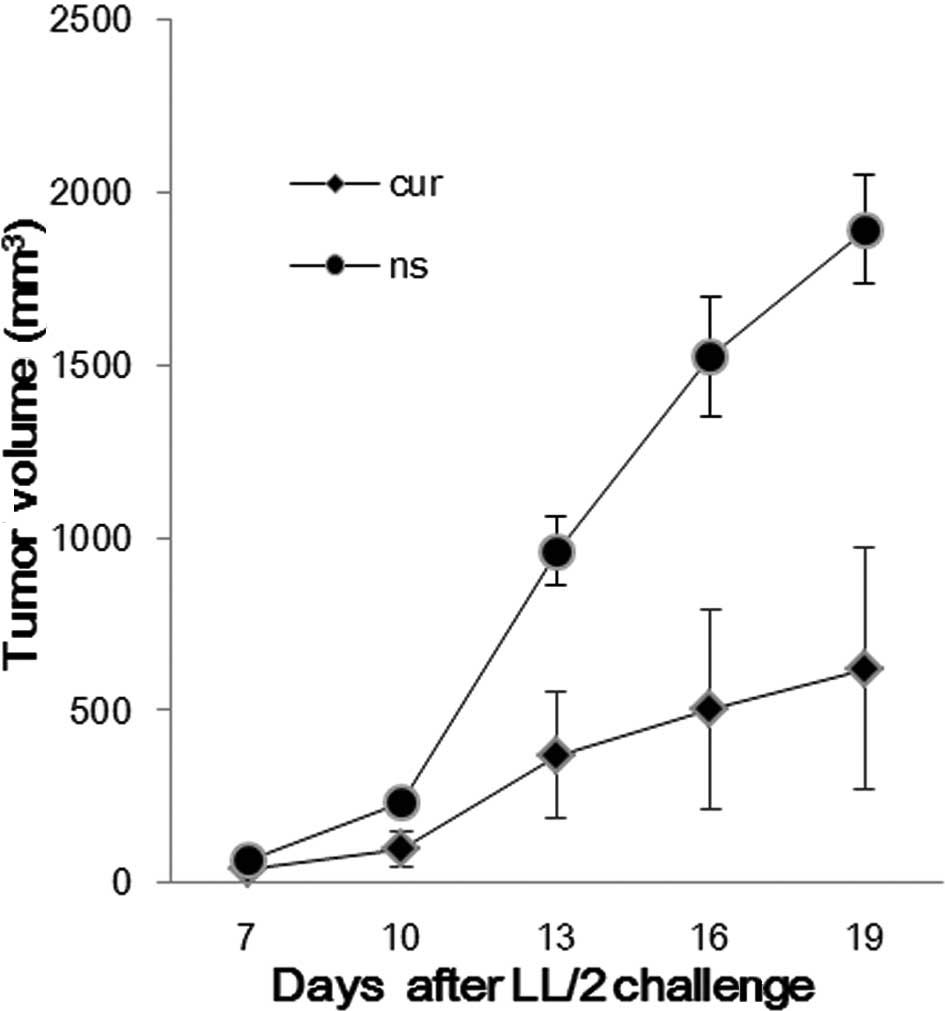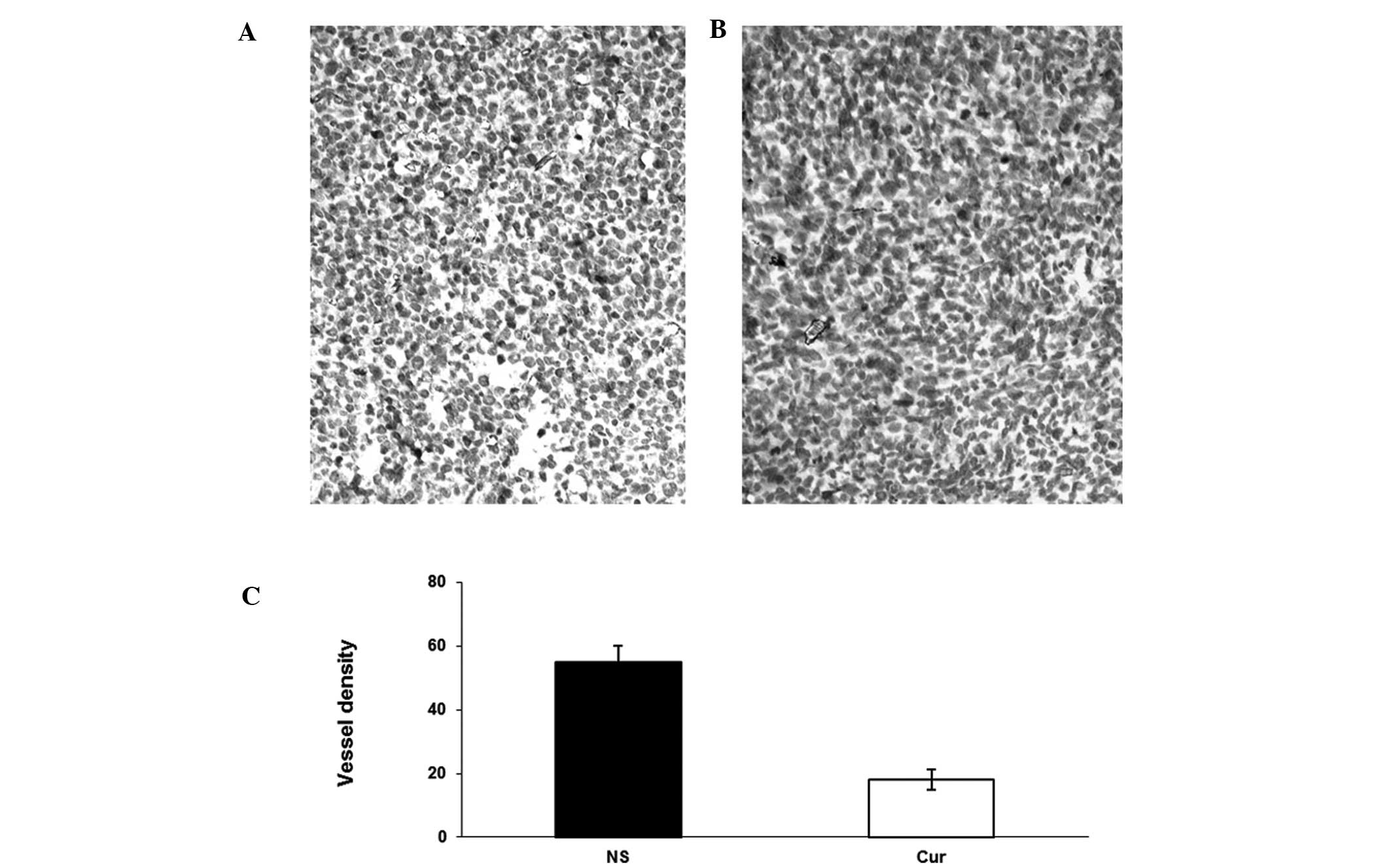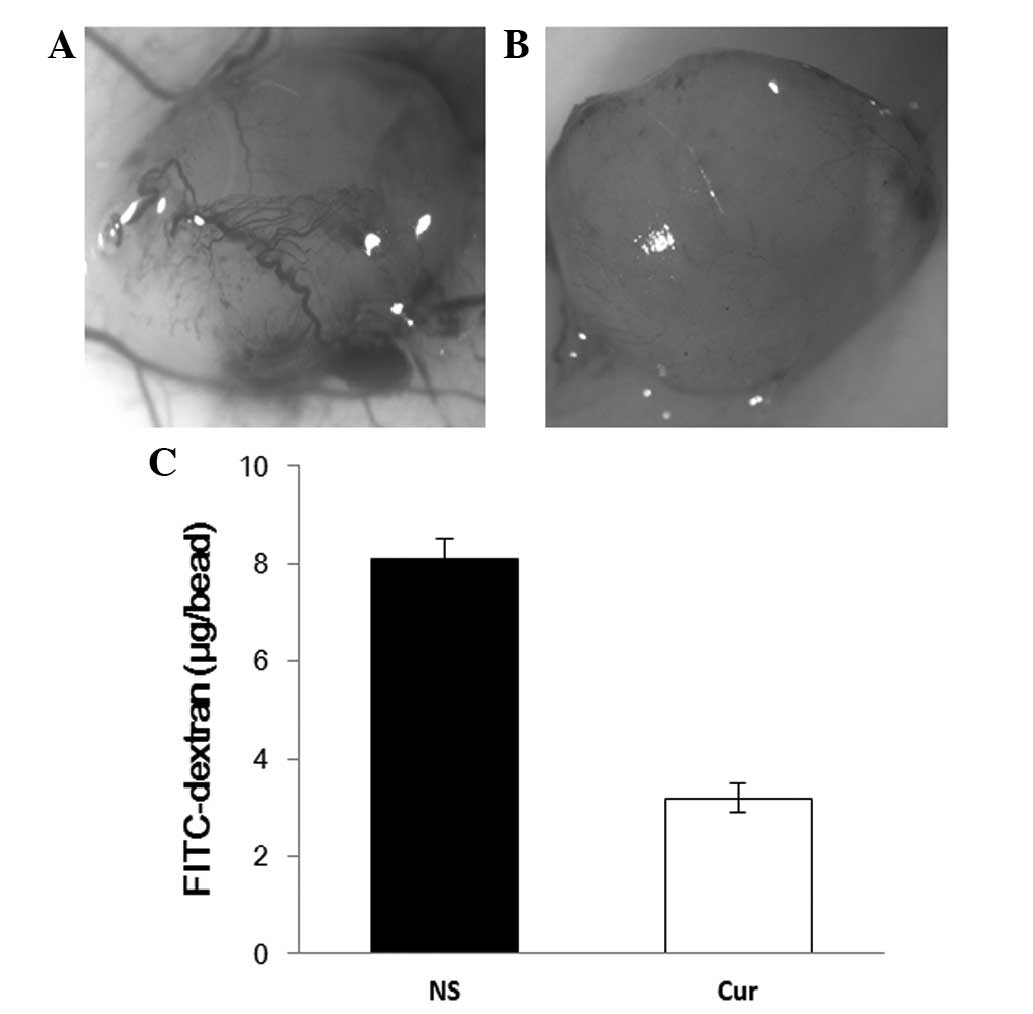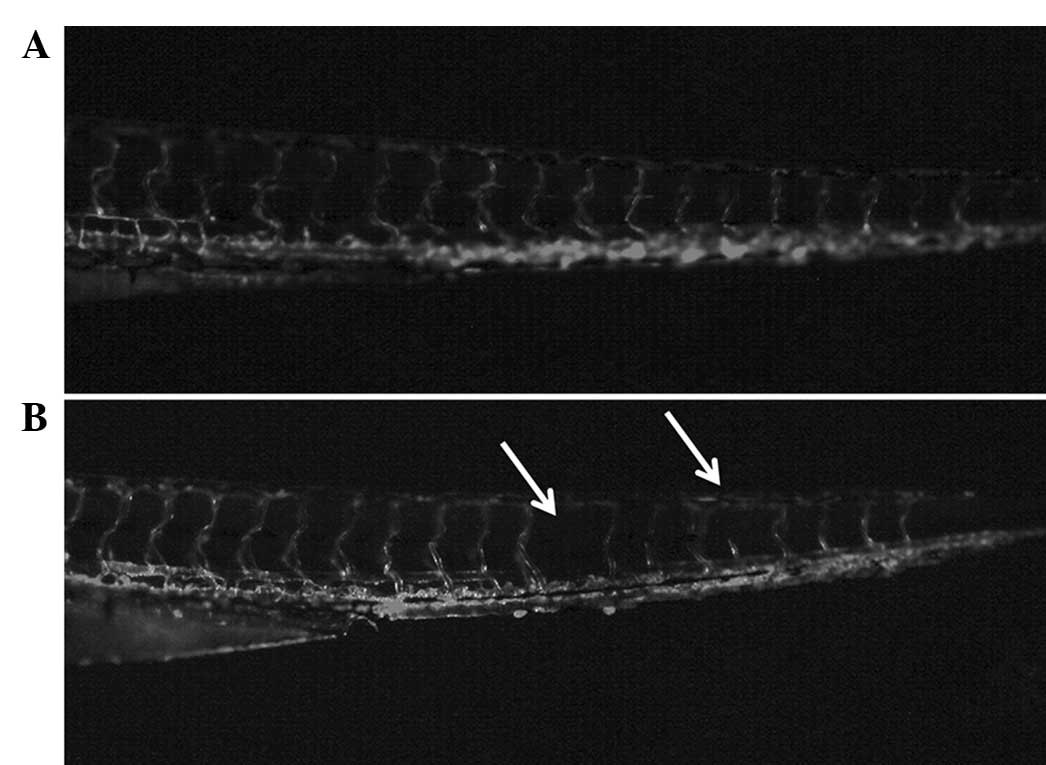|
1
|
Pongrakhananon V, Nimmannit U, Luanpitpong
S, Rojanasakul Y and Chanvorachote P: Curcumin sensitizes non-small
cell lung cancer cell anoikis through reactive oxygen
species-mediated Bcl-2 downregulation. Apoptosis. 15:574–585. 2010.
View Article : Google Scholar : PubMed/NCBI
|
|
2
|
Bharti AC, Donato N, Singh S and Aggarwal
BB: Curcumin (diferuloylmethane) down-regulates the constitutive
activation of nuclear factor-kappa B and IkappaBalpha kinase in
human multiple myeloma cells, leading to suppression of
proliferation and induction of apoptosis. Blood. 101:1053–1062.
2003. View Article : Google Scholar
|
|
3
|
O’Sullivan-Coyne G, O’Sullivan GC,
O’Donovan TR, Piwocka K and McKenna SL: Curcumin induces
apoptosis-independent death in oesophageal cancer cells. Br J
Cancer. 101:1585–1595. 2009.
|
|
4
|
Bhandarkar SS and Arbiser JL: Curcumin as
an inhibitor of angiogenesis. Adv Exp Med Biol. 595:185–195. 2007.
View Article : Google Scholar : PubMed/NCBI
|
|
5
|
Cheng AL, Hsu CH, Lin JK, et al: Phase I
clinical trial of curcumin, a chemopreventive agent, in patients
with high-risk or pre-malignant lesions. Anticancer Res.
21:2895–2900. 2001.PubMed/NCBI
|
|
6
|
Dhillon N, Aggarwal BB, Newman RA, et al:
Phase II trial of curcumin in patients with advanced pancreatic
cancer. Clin Cancer Res. 14:4491–4499. 2008. View Article : Google Scholar : PubMed/NCBI
|
|
7
|
Takahashi M, Uechi S, Takara K, Asikin Y
and Wada K: Evaluation of an oral carrier system in rats:
bioavailability and antioxidant properties of liposome-encapsulated
curcumin. J Agric Food Chem. 57:9141–9146. 2009. View Article : Google Scholar : PubMed/NCBI
|
|
8
|
Allen TM and Cullis PR: Drug delivery
systems: entering the mainstream. Science. 303:1818–1822. 2004.
View Article : Google Scholar : PubMed/NCBI
|
|
9
|
Bejjani RA, Jeanny JC, Bochot A and
Behar-Cohen F: The use of liposomes as intravitreal drug delivery
system. J Fr Ophtalmol. 26:981–985. 2003.(In French).
|
|
10
|
Carmeliet P and Jain RK: Angiogenesis in
cancer and other diseases. Nature. 407:249–257. 2000. View Article : Google Scholar : PubMed/NCBI
|
|
11
|
Gasparini G, Longo R, Toi M and Ferrara N:
Angiogenic inhibitors: a new therapeutic strategy in oncology. Nat
Clin Pract Oncol. 2:562–577. 2005. View Article : Google Scholar : PubMed/NCBI
|
|
12
|
Bai RZ, Wu Y, Liu Q, et al: Suppression of
lung cancer in murine model: treated by combination of recombinant
human endostsatin adenovirus with low-dose cisplatin. J Exp Clin
Cancer Res. 28:312009. View Article : Google Scholar : PubMed/NCBI
|
|
13
|
He QM: Inhibition of tumor growth with a
vaccine based on xenogeneic homologous fibroblast growth factor
receptor-1 in mice. J Biol Chem. 278:21831–21836. 2003. View Article : Google Scholar : PubMed/NCBI
|
|
14
|
Zheng M, Ekmekcioglu S, Walch ET, Tang CH
and Grimm EA: Inhibition of nuclear factor-kappaB and nitric oxide
by curcumin induces G2/M cell cycle arrest and apoptosis in human
melanoma cells. Melanoma Res. 14:165–171. 2004. View Article : Google Scholar : PubMed/NCBI
|
|
15
|
Liao S, Xia J, Chen Z, et al: Inhibitory
effect of curcumin on oral carcinoma CAL-27 cells via suppression
of Notch-1 and NF-κB signaling pathways. J Cell Biochem.
112:1055–1065. 2011.PubMed/NCBI
|
|
16
|
Tabruyn SP and Griffioen AW: A new role
for NF-κB in angiogenesis inhibition. Cell Death Differ.
14:1393–1397. 2007.
|
|
17
|
Wang WZ, Cheng J, Luo J and Zhuang SM:
Abrogation of G2/M arrest sensitizes curcumin-resistant hepatoma
cells to apoptosis. FEBS Lett. 582:2689–2695. 2008. View Article : Google Scholar : PubMed/NCBI
|
|
18
|
Yadav VR and Aggarwal BB: Curcumin: a
component of the golden spice, targets multiple angiogenic
pathways. Cancer Biol Ther. 11:236–241. 2011. View Article : Google Scholar : PubMed/NCBI
|
|
19
|
Wang W, Bernard K, Li G and Kirk KL:
Curcumin opens cystic fibrosis transmembrane conductance regulator
channels by a novel mechanism that requires neither ATP binding nor
dimerization of the nucleotide-binding domains. J Biol Chem.
282:4533–4544. 2007. View Article : Google Scholar
|
|
20
|
Thangapazham RL, Puri A, Tele S,
Blumenthal R and Maheshwari RK: Evaluation of a
nanotechnology-based carrier for delivery of curcumin in prostate
cancer cells. Int J Oncol. 32:1119–1123. 2008.PubMed/NCBI
|
|
21
|
Wang D, Veena MS, Stevenson K, et al:
Liposome-encapsulated curcumin suppresses growth of head and neck
squamous cell carcinoma in vitro and in xenografts through the
inhibition of nuclear factor kappaB by an AKT-independent pathway.
Clin Cancer Res. 14:6228–6236. 2008. View Article : Google Scholar
|
|
22
|
Mach CM, Mathew L, Mosley SA, Kurzrock R
and Smith JA: Determination of minimum effective dose and optimal
dosing schedule for liposomal curcumin in a xenograft human
pancreatic cancer model. Anticancer Res. 29:1895–1899.
2009.PubMed/NCBI
|
|
23
|
Sreekanth CN, Bava SV, Sreekumar E and
Anto RJ: Molecular evidences for the chemosensitizing efficacy of
liposomal curcumin in paclitaxel chemotherapy in mouse models of
cervical cancer. Oncogene. 30:3139–3152. 2011. View Article : Google Scholar : PubMed/NCBI
|
|
24
|
Ganiger S, Malleshappa HN, Krishnappa H,
Rajashekhar G, Ramakrishna Rao V and Sullivan F: A two generation
reproductive toxicity study with curcumin, turmeric yellow, in
Wistar rats. Food Chem Toxicol. 45:64–69. 2007. View Article : Google Scholar : PubMed/NCBI
|















